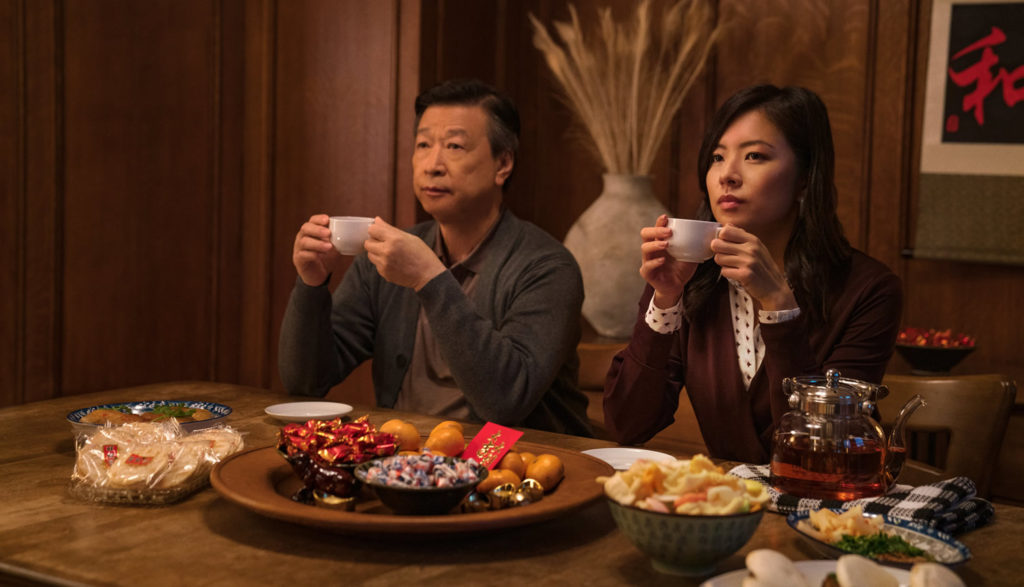
Once upon a time there was a lonely young man living in Taiwan.
Pin-Jui was his name—a charming guy with big dreams. On the charm side of things, Pin-Jui really clicks with his pretty childhood friend, Yuan. They dance to American pop and laughingly dine-and-dash from pricey restaurants. They’re like two halves of the same whole.
But let’s face it, Yuan’s wealthy family would never approve of their relationship.
Then there are those America dreams. Pin-Jui has always longed to travel to those distant shores. Hollywood movies. Rock-‘n’-roll albums. Everything he’s seen, read or heard about America makes it seem like the perfect paradise.
However, Pin-Jui lives with his mother and works beside her in the same poorly paying factory. So the odds of things changing anytime soon for him are pretty slim. For that matter, his mother is getting older. And flirtatious play and American dreams won’t pay the bills.
One day, though, the factory owner comes to Pin-Jui with a proposition. He’s heard of the young man’s longing to travel. And he just so happens to have a rather plain, relatively uninteresting daughter who needs a reliable husband. Perhaps an agreement could be made.
With just a bit of thought, Pin-Jui realizes that the factory owner’s offer could be exactly the kind of opportunity he’s looking for. Who knows what wonders he might encounter in the U.S.? He could support his mother in no time with the right job there. Yes, he’d need to leave her and his true love behind, and live with a wife he can barely talk to. But it would be a new start, a new life.
Of course, new isn’t always better.
So … once upon a time there was a lonely Taiwanese man living in America.
Pin-Jui’s life plays out in disappointing ways. Ultimately his wife, Zhenzhen, leaves him. Pin-Jui also has a nearly nonexistent relationship with his adult daughter, Angela. Obviously, none of that is positive, but the film uses those cheerless situations to point out the importance of moving forward and making positive, healthy connections rather than brooding over past failures or longing for dreams that never happened. Eventually we see small but significant emotional breakthroughs between Pin-Jui and Angela. And we see Zhenzhen moving forward in positive, loving ways as well.
The film also encourages us to be cautious and thoughtful with our choices in life. As an older man, Pin-Jui reconnects briefly over lunch with his old flame, Yuan. And she wonders why he never told her that he was quickly marrying and leaving Taiwan. “What good would it have done?” Pin-Jui asks her. And Yuan replies gently, “I guess we’ll never know.”
Pin-Jui and Angela walk by a religious altar while visiting a mausoleum.
We see Pin-Jui and Yuan kiss. Later, they meet in an isolated park and begin unbuttoning each other’s clothing. Time jumps forward to reveal Pin-Jui shirtless and Yuan’s dress open, exposing her bra (suggesting that the two have had an intimate encounter offscreen).
Years later, Angela moves in with her boyfriend. Elsewhere, we see a young woman on the streets of New York wearing a crop top.
Communist Chinese soldiers bang through Pin-Jui’s grandmother’s house looking for dissidents. Pin-Jui’s mother injures her hand (bloodlessly) when it gets caught in a machine at work.
In Mandarin with English subtitles we encounter two s-words, a single use of “h—” and someone growling out, “Screw that guy!”
On several occasions Pin-Jui smokes, with a friend and alone.
Pin-Jui takes Yuan to a fancy restaurant, knowing full well that he has no money to pay. They run out the door when the bill comes due. Pin-Jui lies to Yuan about an arranged date with Zhenzhen.
As a boy Pin-Jui’s grandmother tells him, “Crying never solves anything!” instilling in him a need to hide his feelings away. Later in life, he harshly says the same thing to his young daughter after she fails publicly. And when an older Angela goes through difficulties in life, Pin-Jui seems almost incapable of comforting her.
Director Alan Yang created this film as something of an homage to his father, who immigrated to America from Taiwan.
Yang’s quiet creation, however, isn’t simply a story of chasing the American dream. Nor is it focused solely on the generational culture clash that happens between immigrants and their children. Those elements are both woven into the tale, but it’s much more universal than that.
Tigertail tells the story of someone losing vibrancy, losing joy over the course of a life. This is a thoughtful, emotional examination of how we’re all changed in small, incremental ways by the choices we make, and the choices we don’t make.
More importantly, though, this film delivers the somber assertion that no matter how much you wish you could relive or change the past, that’s not possible. Rather, you must move forward and reach out, invest in the good things, the loving things that life offers now.
Tigertail is a nicely filmed immigrant’s story, to be sure. But it carries an important encouragement for everyone, no matter where you live or have lived.

After spending more than two decades touring, directing, writing and producing for Christian theater and radio (most recently for Adventures in Odyssey, which he still contributes to), Bob joined the Plugged In staff to help us focus more heavily on video games. He is also one of our primary movie reviewers.